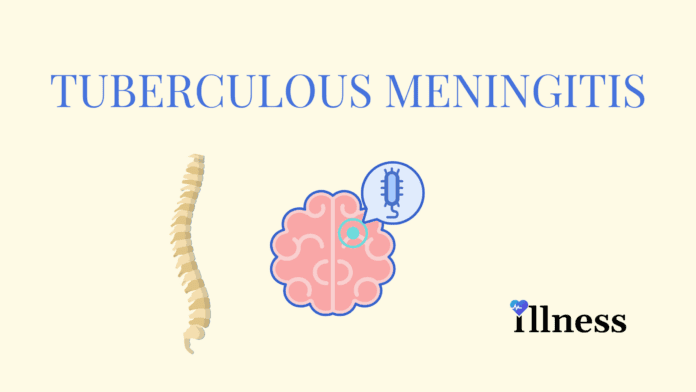Overview Of Tuberculous Meningitis
Tuberculous Meningitis (TBM) is an infection of the tissues covering the brain and spinal cord (meninges).
Commonly Associated With
Tubercular meningitis; TB meningitis
Causes Of Tuberculous Meningitis
Tuberculous meningitis is caused by Mycobacterium tuberculosis. This is the bacterium that causes tuberculosis (TB). The bacteria spread to the brain and spine from another place in the body, usually the lung.
This form of meningitis is very rare in the United States. Most cases are people who traveled to the United States from other countries where TB is common.
People who have the following have a higher chance of developing tuberculous meningitis:
- HIV/AIDS
- Drink alcohol in excess
- TB of the lung
- Weakened immune system
Symptoms Of Tuberculous Meningitis
The symptoms often start slowly, and may include:
- Fever and chills
- Mental status changes
- Nausea and vomiting
- Sensitivity to light (photophobia)
- Severe headache
- Stiff neck (meningismus)
Other symptoms that can occur with this disease may include:
- Agitation
- Bulging fontanelles (soft spots) in babies
- Decreased consciousness
- Poor feeding or irritability in children
- Unusual posture, with the head and neck, arched backward (opisthotonos). This is usually found in infants.
Exams & Tests
The health care provider will examine you for tuberculous meningitis. This will usually show that you have the following:
- Fast heart rate
- Fever
- Mental status changes
- Stiff neck
- A lumbar puncture (spinal tap) is an important test in diagnosing meningitis. It is done to collect a sample of spinal fluid for examination. More than one sample may be needed to make the diagnosis.
Other tests for tuberculous meningitis that may be done include:
- Biopsy of the brain or meninges (rare)
- Blood culture
- Chest x-ray
- CSF examination for cell count, glucose, and protein
- CT scan of the head
- Gram stain, other special stains, and culture of CSF
- Polymerase chain reaction (PCR) of CSF
- Skin test for TB (PPD)
- Other tests to look for TB
Treatment Of Tuberculous Meningitis
You will be given several medicines to fight the TB bacteria. Sometimes, treatment is started even if your provider thinks you have the disease, but testing has not confirmed it yet.
Treatment usually lasts for at least 12 months. Medicines called corticosteroids may also be used.



